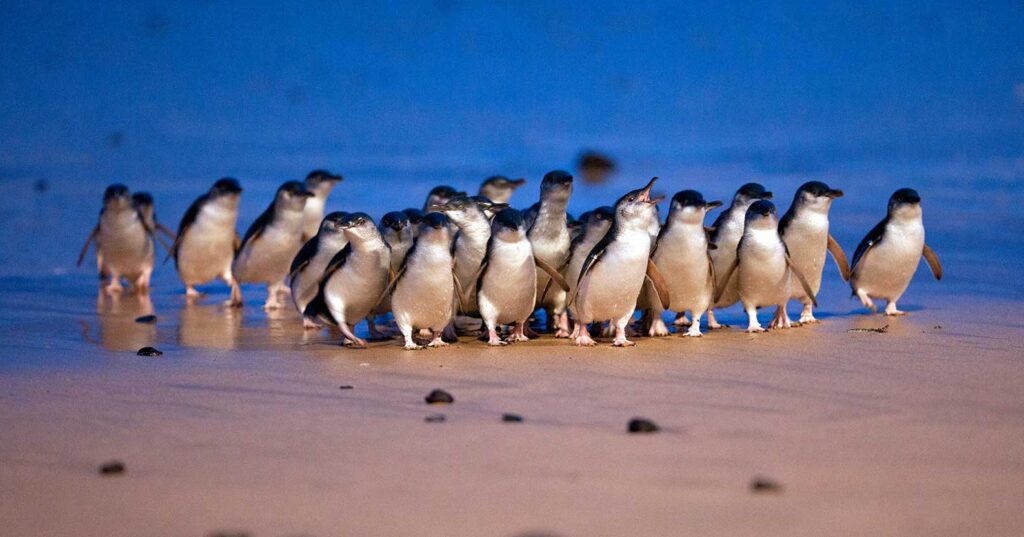It seems even Phillip Island’s famous little penguins face relationship drama. New research reveals that these seabirds aren’t afraid to call it quits with their partners if their nests aren’t filled with enough young. However, breaking up and finding a new mate comes with risks, often lowering their breeding success in the following season.
A decade-long study conducted by Monash University and Phillip Island Nature Parks has shed light on the colony’s complex love lives.
Surprisingly, the researchers found that the rate of divorce among the penguins is a better predictor of the colony’s overall reproductive success than environmental factors like habitat changes or how much time penguins spend foraging for food. When more penguins swap partners in a breeding season, the colony’s collective reproductive success declines.
Home to the world’s largest colony of little penguins, Phillip Island boasts a population of 37,000 of these remarkable seabirds. The famous Penguin Parade draws thousands of visitors annually, offering a rare glimpse into their nightly trek from the ocean to their burrows.
While the adorable waddles capture hearts, the new research highlights the challenges these penguins face, showing that love in the animal kingdom can be just as complicated as it is for humans.
Head of Head of Monash’s Ecophysiology and Conservation Research Group in the School of Biological Sciences, Professor Richard Reina, has studied the island’s penguins for 20 years. He said contrary to popular belief, not all penguins partner for life.
“In good times, they largely stick with their partners, although there’s often a bit of hanky-panky happening on the side,” Professor Reina said.
“However, after a poor reproductive season they may try to find a new partner for the next season to increase their breeding success.
“Our study looked across 13 breeding seasons, tracking which individuals changed partners, or divorced, from one season to the next.
“We recorded nearly 250 penguin divorces from about a thousand pairs throughout the study, and we found that years with a lower divorce rate resulted in higher breeding success.”
This research is the latest in a decades-strong collaborative relationship between Monash University and Phillip Island Nature Parks.
The full paper was published this month in the peer-reviewed journal Ecology and Evolution.

